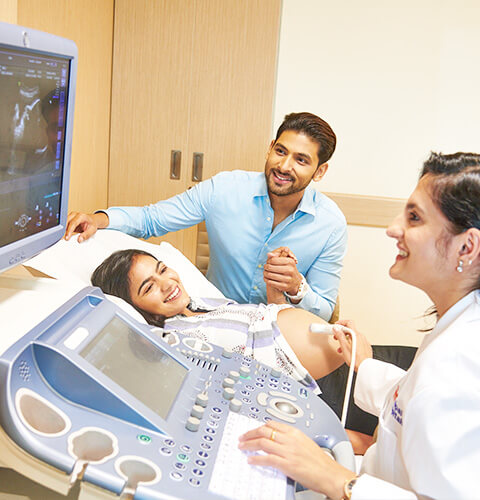Gynaecology takes care of hormonal imbalances, cycle disorders, contraception, menopause, pathologies of the breast, vagina, uterus, and detects genital cancers.
Gynaecology also treats the couple’s sterility and infertility. Obstetrics is a branch of gynaecology dedicated to monitoring pregnancy and childbirth. Now Gynecologist Hospital in Jaipur are globally recognized for their maximum percentage of healthy treatment.
Who Should Go to Gynecologist Hospital in Jaipur?
Gynaecology can be presented as medical treatment field for women. It concerns all stages of their genital life, from puberty to menopause and beyond.
How Does a Gynaecological Consultation Take Place?
Whether it is particular symptoms or specific abnormalities (for example, pelvic pain, vaginal bleeding or vaginal discharge), the gynaecologist begins by carrying out a preliminary interview to assess the general state of health of the patient. Before the clinical examination, this interview allows him to obtain the essential information (personal and family medical history, lifestyle, and sexual habits). The latter analyses the external genitalia and the vagina to assess their physiological and pathological state. Here is the list of the most common specific examinations that a gynaecologist can use during a consultation, depending on the symptoms identified or what is best for the patient:
• Cervical cancer screening examinations, especially the smear. A pap smear is a routine examination carried out almost throughout the patient’s life. It consists of taking a sample of cervical cells, which is then analyzed to detect possible signs of cervical cancer.
• Microbiological tests aimed at analyzing samples for specific microorganisms linked to sexually transmitted diseases, such as gonorrhoea and chlamydia. These are done if the patient has symptoms or risk factors. Samples can be taken from the urinary genitals, such as the endocervix (sample obtained through a smear) and urine.
• Diagnostic imaging tests, including pelvic ultrasound. It is a simple, painless and very effective examination to assess the state of health of the uterus and ovaries. This examination makes it possible to diagnose possible gynaecological problems, such as the formation of cysts or fibroids.
• Breast examination consists of analyzing the breasts from different points of view and performing palpation to detect possible cysts or nodules. This non-instrumental clinical examination is based solely on observation and evaluation by the touch of the mammary glands. The gynaecologist can thus educate the patient on the benefits of self-examination. Self-examination is the first breast cancer “prevention” tool, as it allows early detection of any abnormal change in the appearance of the breasts.
• In-depth diagnostic examinations, such as colposcopy. The gynaecologist resorts to colposcopy to deepen the diagnosis when the results of the smear of the patient show an anomaly.
What Are the Symptoms Treat in Gynaecology?
Gynaecological diseases concern the affections of the different parts of the female genital system.
The symptoms treated by the gynaecologist are:
– Pain in the lower abdomen
– Menstrual cycle disorders or absence of periods
– Lower genital infections affecting the vulvovaginal region
– Urogenital prolapse, can affect the uterus, bladder or rectum
– Uterine fibroids (benign tumours)
– Endometriosis, a chronic inflammatory disease
– Sexually transmitted diseases
– HPV Human papillomavirus infection, responsible for uterine cancer.
Endometriosis
Endometriosis is represented by uterine mucosa outside the uterine cavity and localized on the cervix, fallopian tubes, ligaments, ovaries, peritoneum, vagina or vulva. Symptoms of endometriosis are painful periods, urinary or digestive disorders, disabling.
Breast Cancer
Breast cancer results from a malignant tumour in the breast cells. Cancer cells can invade nearby tissues and destroy them.
Cervical Cancer
Cervical cancer starts in the first layer of the cervix lining, the epithelium. It leads causing infection with a sexually transmitted virus, the human papillomavirus or HPV.
Uterine cancer develops slowly, taking 10 to 15 years to manifest after infection with the virus. Cancer of the cervix is detect during a screening examination (cervical-uterine test).
Urogynecology
Urogynecology treats women’s disorders and dysfunctions of the bladder, organ descents, and urinary incontinence. These conditions include:
– Urinary and faecal incontinence
– Postpartum repercussions (pain in the perineum, urinary disorders)
– The descent of organs or female prolapse (especially the urethra, bladder and rectum)
The consultation in urogynecology allows a complete assessment thanks to an urodynamic examination used to propose an adapted therapy.
Supported
The gynaecological care of patients concerns:
– Contraception
– Pregnancy monitoring
– Support for menopause
– The repercussions of menopause (osteoporosis, angina, hypertension, depression)
– Benign breast conditions
– Cancers (breast, cervix, endometrium, ovary),
– Genital infections (vulvovaginitis and salpingitis, HIV)
– Infertility
– Surgery of the vulva, vagina, uterus and its annexes (ovaries and fallopian tubes).
– Gynecologist Hospital in Jaipur is state-of-the-art medical infrastructure for support from diagnosis to treatment.
– Innovative equipment in gynaecology and obstetrics, lasers for intimate rejuvenation and restoration of gynaecological and breast cancers.
Conclusion:
Gynecologist Hospital in Jaipur is the most extensive network of private clinics in Jaipur, offering you clinics and centres dedicated to gynaecology. Obstetrician-gynaecologists have the best medical training. Midwives, nurses’ aides, medical assistants accompany you throughout your care journey, taking into account your own needs.
